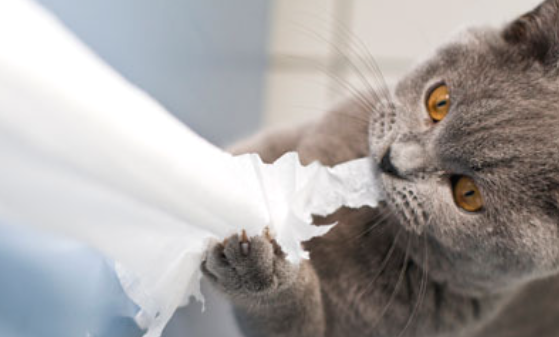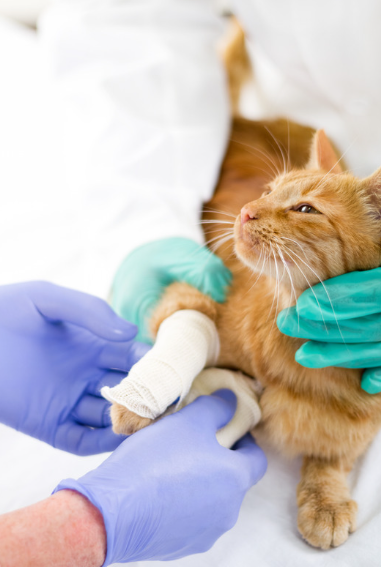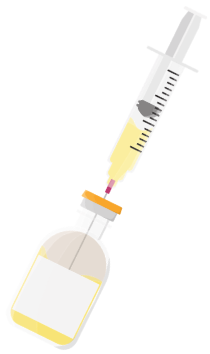
Chronic kidney disease

The kidneys role is to filter out waste products from the blood into the urine whilst saving water for the body to use. Chronic Kidney Disease (CKD) is a progressive deterioration in kidney function causing dehydration (as water is no longer retained) and a build up of waste products such as urea. This can make your pet feel unwell and can cause reduced appetite and vomiting.
Another role of the kidneys is to produce a hormone called erythropoietin (EPO) which tells the bone marrow to produce new red blood cells. This hormone production is reduced with CKD and so often low red blood cells may be present.
Unfortunately, this disease is common in older dogs and especially in older cats.
Treatment
If a blood test shows that your pet's kidney levels are very high, or they're not eating or unwell, hospitalisation may be recommended to help them.
- FLUIDS - Fluid therapy may be required if your pet is dehydrated or at risk of becoming dehydrated. We may teach you how to administer fluids under the skin to your pet at home.
- MEDICATIONS - Medications to help your pet feel better and less nauseous may be started. Injections to improve red blood cell levels may be suggested as well as supplements to help reduce toxins in the blood.
- DIET - A special low protein diet (Royal Canin Renal or Hill’s k/d) is generally recommended. These are available in many forms and flavours. Your vet will help to decide which is best for your pet.
Prognosis
With current treatments, many animals with kidney problems can go on to lead a happy life for many years if they are carefully treated and monitored. However, it is important to remember it is likely the kidney disease will progress over time.
Monitoring CKD
Further tests may be recommended to give us more information regarding your pet’s kidney disease.
Regular monitoring (at least every 3-6 months) is recommended to assess the progression of the disease. Your vet will tell you when the next recheck should be.
Complications
Please contact us immediately if your pet is:
- not eating for more than 24 hours
- vomiting more often than once every 1-2 months
- losing weight
- breathing heavily
Related Blogs




